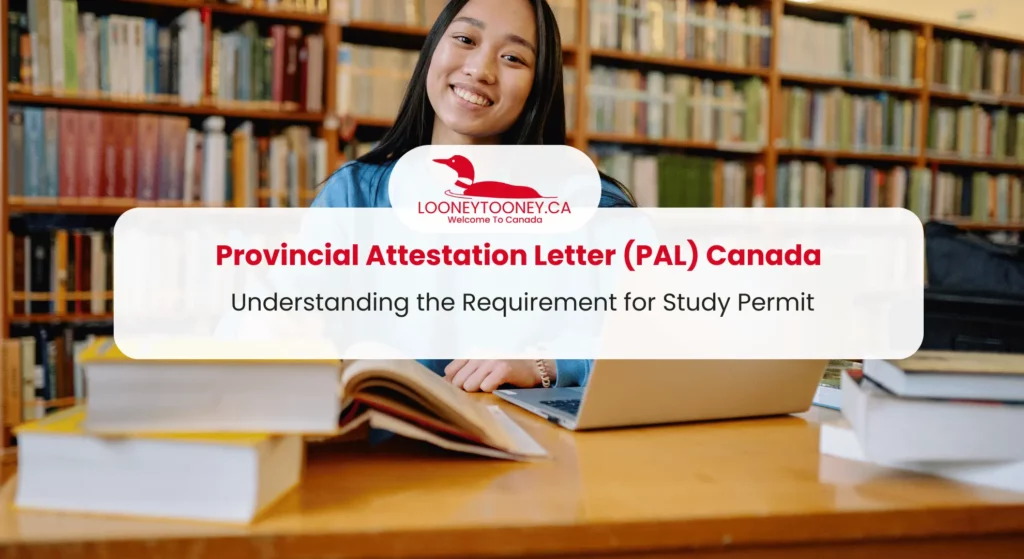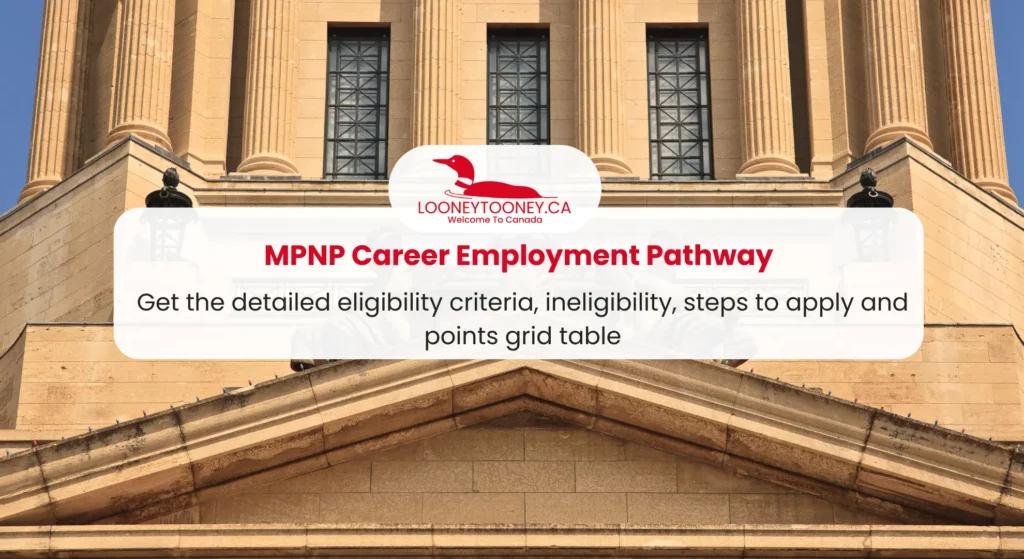The Federal Skilled Worker Program (FSWP) is one of the three pillars of Canada’s Express Entry system. It is designed to streamline immigration applications. Unlike other pathways, the FSW program doesn’t require prior connections to Canada. Instead, it focuses on one’s foreign work experience and opens doors to a promising future. This program, designed by the Government of Canada, aims to contribute to the nation’s economic growth and development. It offers a streamlined route to permanent residency for qualified workers. Thus, it not only strengthens its workforce but also leads to a diverse and inclusive society.
As said, the Federal Skilled Worker Program targets proficient workers seeking permanent residency, emphasizing their work background. Immigrants are chosen based on factors like education, work history, and other such indicators. Spouses and children are also included in the application process.
Quebec operates its selection system for skilled workers known as the Quebec Skilled Worker Class (QSW). In this article, we will delve into the Federal Skilled Worker Program, exploring its eligibility, process, selection criteria, and more.
Table of Content
- Federal Skilled Worker Program Eligibility Criteria
- Federal Skilled Worker Program Selection Factors
- Residency Requirements in Canada
- Document Requirements
- Steps for the Federal Skilled Worker Program Application
- Documents for Permanent Residence Application
- Federal Skilled Worker Program Processing Time
- FSWP FAQs
Federal Skilled Worker Program Eligibility Criteria
To be eligible, individuals must meet all the minimum requirements for:
- Skilled work experience
- Language ability
- Education
If all these requirements are met, the application will be assessed based on additional selection factors. Here are the minimum requirements in detail.
1. Skilled Work Experience
Skilled work experience includes employment as follows:
- Within one of the following National Occupational Classification (NOC) TEER categories: TEER 0, TEER 1, TEER 2, or TEER 3.
- Demonstrating the performance of duties outlined in the occupational description in the NOC. This experience must be within the same type of job (matching the NOC) as the one intended for the immigration application.
- It must have at least one year of continuous work or 1,560 hours in total (equivalent to 30 hours per week) obtained within the last 10 years, either in Canada or abroad, and paid.
- Full-time employment for 12 months, equal amounts of part-time work totalling 1,560 hours, or combining multiple part-time jobs, are acceptable to meet this requirement.
- Volunteer work or unpaid internships are not considered as part of skilled work experience.
- For part-time work, the total hours worked, whether exceeding or falling short of 15 hours per week, should sum up to 1,560 hours. However, any hours beyond 30 hours per week are not counted towards the requirement.
- Work experience acquired during studies may contribute towards meeting the minimum requirements if it is paid, continuous, and satisfies all other program criteria.
2. Language Ability
Applicants are required to:
- Complete approved language tests in English or French, covering writing, reading, listening, and speaking.
- Score the minimum CLB required in all four abilities.
- Record the test results in their Express Entry profile.
These language test results remain valid for two years from the date of the test. Importantly, they must remain valid on the day of the permanent residence application submission.
The language tests approved by the IRCC are
- CELPIP: Canadian English Language Proficiency Index Program
- TEF Canada: Test d’évaluation de français
- IELTS: International English Language Testing System
- TCF Canada: Test de connaissance du français
- PTE Core: Pearson Test of English
3. Education
Education requirements differ based on whether the schooling occurred in Canada or abroad:
For Canadian education, applicants must possess a certificate, diploma, or degree from either a Canadian secondary institution (high school) or a post-secondary institution.
For foreign education, applicants must present:
- A completed educational credential.
- An Educational Credential Assessment for immigration purposes obtained from a designated organization, demonstrating equivalence to a completed certificate, diploma, or degree from a Canadian secondary institution (high school) or post-secondary institution.
4. Proof of Funds
Proof of funds is necessary to demonstrate ample financial resources for settling in Canada for you and your family, except if you:
- Currently have legal permission to work in Canada.
- Have obtained a valid job offer from a Canadian employer.
Additionally, meeting admissibility requirements is essential for entry into Canada.
Federal Skilled Worker Program Selection Factors
Once all the minimum requirements are met, eligibility for the Federal Skilled Worker Program is evaluated based on several factors:
- Age
- Education
- Work experience
- Possession of a valid job offer
- English or French language proficiency
- Adaptability, indicating potential for successful settlement in Canada.
Each factor is assessed, and an overall score out of 100 is assigned based on performance in these six areas. Currently, the score for passing stands at 67 points.
Scoring 67 points or more makes you eligible for the Federal Skilled Worker Program, enabling you to submit a profile to the Express Entry pool. Falling below the 67-point threshold disqualifies you from the program. However, you may enhance your score by improving language proficiency, pursuing further education, or securing an offer of arranged employment in Canada.
You can also use our Federal Skilled Worker Program Calculator given below to get your score for free.
1. Language
Language proficiency is a significant aspect of the immigration process, with a maximum allocation of 28 points available. Proficiency in either English, French, or both is highly advantageous in the Canadian job market. Points are awarded based on your proficiency in writing, reading, listening, and speaking.
To assess language proficiency, applicants must undergo an approved language test, utilizing Canadian Language Benchmarks (CLB) for English or Niveaux de compétence linguistique canadiens (NCLC) for French. A minimum level of CLB 7 or NCLC 7 in all four language areas is required for the first official language to qualify for points. For the second official language, a minimum level of CLB 5 or NCLC 5 in all four language areas is necessary.
After completing the language test, applicants can determine the exact number of points awarded for the language selection factor. This comprehensive evaluation ensures fair assessment and equitable distribution of points based on language proficiency.
| Language | Points | |||
| First official language | Speaking | Listening | Reading | Writing |
| CLB level 9 or higher | 6 | 6 | 6 | 6 |
| CLB level 8 | 5 | 5 | 5 | 5 |
| CLB level 7 | 4 | 4 | 4 | 4 |
| Below CLB level 7 | Not eligible to apply | Not eligible to apply | Not eligible to apply | Not eligible to apply |
Second official language
You will receive 4 points only if you achieve a minimum score of CLB 5 in each of the 4 language skills.
| Second official language | Points |
| At least CLB 5 in each Speaking, Listening, Reading and Writing | 4 |
| CLB 4 or lower in any of the four abilities stated above | 0 |
2. Education
If you attended school in Canada, you are required to hold a certificate, diploma, or degree from either a Canadian secondary institution (high school) or post-secondary institution. However, if your education was obtained abroad, you must possess an Educational Credential Assessment (ECA) report for immigration purposes from a designated organization.
This report must demonstrate that your education is equivalent to a completed certificate, diploma, or degree from a Canadian secondary institution (high school) or post-secondary institution. When submitting your application, you must include either your Canadian credential or your foreign credential along with the Educational Credential Assessment report.
| Education Level | Points |
| University degree at the Doctoral (PhD) level | 25 |
| University degree at the Master’s level | 23 |
| A professional degree required for licensed practice | 23 |
| Two or more certificates, diplomas, or degrees | 22 |
| Bachelor’s degree or equivalent programs (lasting three or more years) from a university, college, trade or technical school, or other institution | 21 |
| Degree, diploma, or certificate from a program at a university, college, trade or technical school, or other institution of 2 years | 19 |
| One-year degree, diploma, or certificate from a program at a university, college, trade or technical school, or other institution | 15 |
| Secondary school (high school diploma) | 5 |
3. Work Experience
Work experience is a crucial factor in the immigration process, with a maximum allocation of 15 points available. Points are awarded based on the number of years spent in full-time paid work, which entails a minimum of 30 hours per week, or an equivalent amount of part-time work (15 hours per week for 24 months). This work must be in a skilled occupation listed in Training, Education, Experience, and Responsibilities (TEER) categories 0, 1, 2, or 3 of the 2021 National Occupational Classification (NOC).
Qualifying work experience can be obtained in Canada or abroad, during periods of study, or while being self-employed. It’s important to identify the appropriate “NOC code” for each job included in your Express Entry profile, as the National Occupational Classification (NOC) categorizes occupations in the Canadian labour market. If the description and main duties of your past job(s) align with the NOC code, you can count this experience for points.
Refer to the provided chart to determine the number of points based on the duration of your work experience. This comprehensive evaluation ensures fair assessment and equitable distribution of points based on work experience.
| Experience | Maximum 15 points |
| 1 year | 9 |
| 2-3 years | 11 |
| 4-5 years | 13 |
| 6 or more years | 15 |
4. Age
You’ll get points based on your age on the day IRCC receives your application.
| Age | Points |
| Under 18 | 0 |
| 18-35 | 12 |
| 36 | 11 |
| 37 | 10 |
| 38 | 9 |
| 39 | 8 |
| 40 | 7 |
| 41 | 6 |
| 42 | 5 |
| 43 | 4 |
| 44 | 3 |
| 45 | 2 |
| 46 | 1 |
| 47 and older | 0 |
5. Arranged Employment
Arranged employment in Canada holds a maximum point allocation of 10 points and can be obtained through a job offer lasting at least one year from a Canadian employer. This job offer must be secured before applying to immigrate to Canada as a Federal Skilled Worker.
A valid job offer entails continuous, paid, full-time employment (a minimum of 30 hours per week) that is not seasonal, lasting for at least one year, and falls within an occupation listed in TEER categories 0, 1, 2, or 3 of the National Occupational Classification (NOC). Additionally, it must be demonstrated that the applicant is capable of performing the offered job and is likely to obtain the required licensing or certification in Canada if the occupation is regulated.
To receive 10 points for a valid job offer, one of the following situations must apply:
Situation 1:
The applicant is currently employed in Canada under a valid work permit, issued based on a positive labour market impact assessment (LMIA) in an occupation listed in TEER categories 0, 1, 2, or 3 of the NOC. The work permit must remain valid at the time of application and when the permanent resident visa is issued.
Situation 2:
The applicant currently works in Canada in a job exempt from the LMIA requirement due to international agreements or significant benefits to Canadian interests. The work permit must be valid during the application process and when the permanent resident visa is issued, and the applicant must have been working for the employer specified on their work permit for at least one year, continuously full-time or part-time equivalent.
Situation 3:
The applicant does not currently hold a work permit or intend to work in Canada before obtaining a permanent resident visa. An employer has secured a positive LMIA and made a valid job offer based on the LMIA and the applicant’s acceptance as a skilled worker.
Situation 4:
The applicant holds a valid work permit or is permitted to work in Canada without a work permit, currently employed in a job exempt from the LMIA requirement but not under an international or federal-provincial agreement or significant benefit to Canadian interests. Another employer has obtained a positive LMIA and made a valid job offer based on the LMIA and the applicant’s acceptance as a skilled worker.
ESDC only confirms valid job offers for occupations listed in TEER categories 0, 1, 2, or 3 of the NOC.
6. Adaptability
Adaptability, with a maximum point of 10, considers both you and your spouse or common-law partner’s potential to integrate successfully into life in Canada. Points are earned by combining various elements and assessing your collective ability to adapt to Canadian life.
| Details | Points |
| Your spouse or common-law partner demonstrates language proficiency in either English or French at a CLB 4 level or higher in all four language abilities (speaking, listening, reading, and writing). You must provide your spouse or common-law partner’s test results from an approved agency when you submit your application. The language test results remain valid for two years from the date of the test and must be current on the day of your permanent residence application. | 5 |
| Your spouse or common-law partner also completed a minimum of two academic years of full-time study (in a program lasting at least two years) at a secondary or post-secondary institution in Canada. Full-time study requires a minimum of 15 hours of classes per week, and your spouse or partner must have maintained good academic standing as determined by the school during that time. | 5 |
| Your spouse or partner completed at least one year of full-time work in Canada with a legitimate work permit or while having the authorization for work in Canada. | 5 |
| You or your spouse or common-law partner have a relative who is residing in Canada, is 18 years or older, and is either a Canadian citizen or permanent resident. This relative must be a parent, grandparent, child, grandchild, sibling (child of your or your spouse’s parent), aunt or uncle (by blood or marriage), niece or nephew (grandchild of your or your spouse’s parent). | 5 |
Adaptability Points Related to You
| Details | Points |
| You completed a minimum of two academic years of full-time study (in a program lasting at least two years) at a secondary or post-secondary institution in Canada. Full-time study entails a minimum of 15 hours of classes per week, and you must have maintained good academic standing as determined by the school during that period. | 5 |
| You engaged in at least one year of full-time work in Canada in a job listed in TEER categories 0, 1, 2, or 3 of the NOC, either with a legitimate work permit or while having the authorization for work in Canada. | 10 |
| You earned points for having arranged employment as specified above. | 5 |
Residency Requirements in Canada
As an applicant for the Federal Skilled Worker Program, you are required to intend to reside outside the province of Quebec. Quebec has its selection process for skilled workers, known as the Quebec-selected skilled workers program. Therefore, if you intend to settle in Quebec, you should refer to the Quebec-selected skilled workers program.
When completing your profile for the FSWP, you will be asked to indicate your intended province or territory of residence in Canada. However, it’s important to note that your selection in this regard is not binding, and you are not obligated to settle in the province or territory you indicate.
For applicants nominated by a province or territory through the Provincial Nominee Program (PNP), there is a requirement to settle in the province or territory that has nominated you. This condition ensures alignment with the specific nomination process and intentions of the nominating province or territory.
Document Requirements
Throughout the Express Entry application process, specific documents are necessary at various stages. When creating your Express Entry profile, you won’t need to upload documents initially. However, you may need information from the following documents:
- Passport or travel document
- Language test results
- Proof of Canadian education or an educational credential assessment report for immigration purposes (if applicable)
- Provincial nomination certificate (if applicable)
- Legitimate job offer from a Canadian employer
- Proof of work experience
- Certificate of qualification in a trade occupation issued by a province or territory in Canada (if applicable)
- Proof of funds
Steps for the Federal Skilled Worker Program Application
Follow these instructions for the Federal Skilled Worker Program Application:
Step 1: Check Eligibility
To determine eligibility for Express Entry, applicants can use either the information above or the tool we provided above, taking approximately 15 minutes. If married or in a common-law partnership, one partner must be the main applicant. This individual should meet eligibility criteria and potentially earn the most points in selection factors.
Step 2: Create Profile
If deemed eligible, applicants proceed to create an Express Entry profile online, entering personal details.
Step 3: Submit Profile
Complete the profile within 60 days, including the required information from documents and the NOC job title and code. Submit the profile online, allowing IRCC to determine eligibility and potential program invitations. Program preference selection is not available during profile creation. After this, wait for an invitation to apply.
Documents for Permanent Residence Application
Upon receiving an invitation to apply, you’ll need to upload copies of the documents used for your profile, along with additional documents:
- Police certificates
- Proof of funds
- Birth certificate (if declaring dependent children)
- Use of a Representative form (if applicable)
- Common-law union form (if declaring marital status as “common-law”)
- Marriage certificate (for those declaring marital status as “married”)
- Divorce certificate and legal separation agreement (for those declaring marital status as “divorced”)
- Death certificate (for those declaring marital status as “widowed”)
- Adoption certificate (if the dependent child is listed as “adopted”)
- Other documents, as specified in your personalized document checklist
Federal Skilled Worker Program Processing Time
The Federal Skilled Worker Program typically takes 5 months to process. One must also note that processing times can vary due to factors like application volume and changes in immigration policies.
In conclusion, the Federal Skilled Worker Program is an essential component of Canada’s immigration system, attracting skilled workers and contributing to the nation’s economic growth and development. By adopting a points-based system and continuously updating eligibility criteria and selection factors, the FSWP remains a dynamic and responsive pathway for skilled professionals seeking permanent residency in Canada. The FSW program is for skilled professionals worldwide. It offers a direct route to permanent residency in Canada, allowing you to build a life in a country known for its inclusivity, natural beauty, and thriving economy.
Federal Skilled Worker Program FAQs
Q. What is the Federal Skilled Worker Program?
A. The Federal Skilled Worker Program (FSWP) is designed for skilled workers aiming for permanent residency. It prioritizes applicants with strong work experience. Selection criteria include education, work history, English and/or French proficiency.
Q. What is the minimum score for the Federal Skilled Worker Program?
A. The minimum score for the Federal Skilled Worker Program is 67 out of 100.
Q. What are the minimum requirements for the Federal Skilled Worker Program (FSWP)?
A. To qualify for the Federal Skilled Worker Program, applicants need one year of full-time paid work experience in the past decade, language test results meeting CLB 7 standards, and a Canadian or assessed foreign educational credential. They must also score at least 67 points on IRCC’s selection factors.
Q. How is skilled work experience defined for the FSWP?
A. Skilled work experience includes jobs listed in NOC TEER categories 0, 1, 2, or 3, with duties matching those in the NOC description. It requires at least 1 year of continuous or 1,560 total hours of paid work within the last 10 years, either in Canada or abroad. Part-time work is accepted if it meets specific criteria and totals 1,560 hours.
Q. What language proficiency is required for the FSWP?
A. Applicants must pass approved language tests in English or French, testing writing, reading, listening, and speaking. CLB 7 or NCLC 7 in all four language areas is required for the first official language, while CLB 5 or NCLC 5 is needed for the second official language. Results are valid for two years, required to be current upon permanent residence application.
Also read,





